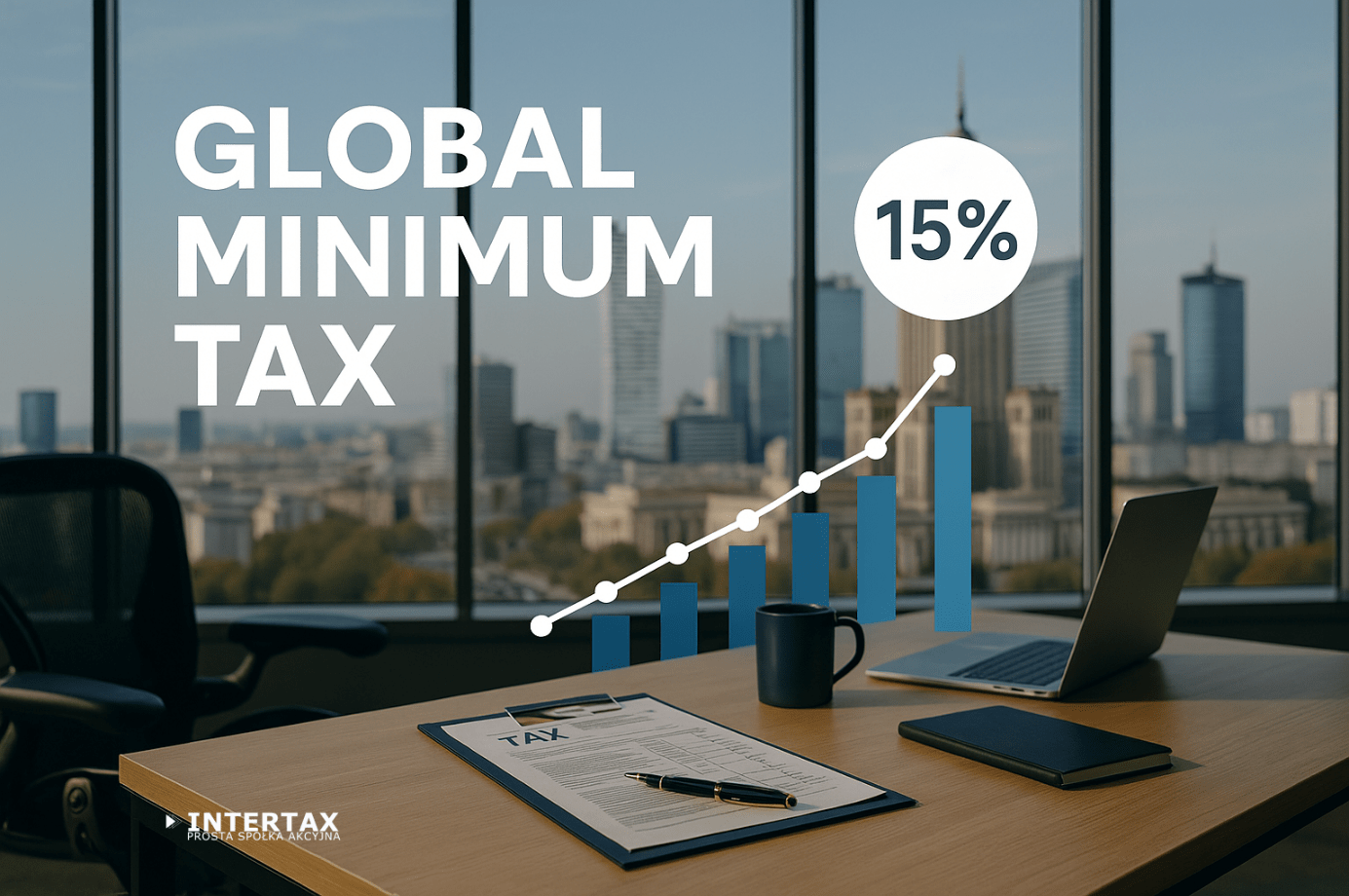1. Introduction to Pillar 2 and the Global Minimum Tax
In 2025, Poland implemented the Global Minimum Tax (GMT), also known as Pillar 2, in line with the EU directive and the OECD’s global initiative. The system ensures that large multinational and domestic groups with revenues of at least EUR 750 million in at least two of the four tax years immediately preceding a given year, pay a minimum income tax rate of 15% on their profits.
2. Legislation Implementing the Global Minimum Tax
The Polish Compensatory Taxation Act, adopted on 6 November 2024, entered into force on 1 January 2025. It introduced three key mechanisms of corporate taxation under Pillar Two:
- Global Compensatory Tax (Income Inclusion Rule – IIR)
- Qualified Domestic Minimum Top-up Tax (QDMTT)
- Undertaxed Profits Tax (UTPR)
These measures apply to corporate income within the territory of Poland and to foreign entities with a tax residence in Poland.
3. Core Tax Rules and Compliance Requirements
3.1 Main features of Pillar 2
- Income Inclusion Rule (IIR): ensures that the parent company’s jurisdiction collects a top-up tax on undertaxed profit if subsidiaries are taxed below the 15% minimum.
- Qualified Domestic Minimum Top-up Tax (QDMTT): allows Poland to impose a domestic top-up tax to secure revenues if a local entity’s tax base is subject to tax below 15%.
- Undertaxed Profits Rule (UTPR): applies where neither IIR nor QDMTT capture the undertaxed income.
A substance-based income exclusion applies, lowering the effective tax burden in some cases.
3.2 Retroactive application
Groups may elect applying the Polish legislation retroactively from 1 January 2024, provided that a formal statement in the form of a notarial deed is submitted to a Polish tax authorities between 1 March and 30 May 2026.

4. Administrative Burden and Tax Office Oversight
The new legislation introduces extensive reporting requirements. Groups must calculate the effective tax rate (ETR) for each jurisdiction, determine the tax base, and submit data to the Polish tax authority. The first tax return deadline is 30 June 2026.
Poland has also created a Compensatory Taxation Council, which provides guidance, issues tax rulings, and supports taxpayers in determining their obligations. Rulings are subject to a statutory deadline of 11 months and fees ranging from PLN 15,000 to PLN 50,000.
5. Difference from the Domestic Minimum Income Tax
It is important to distinguish the Global Minimum Tax from Poland’s domestic minimum income tax, introduced on 1 January 2024 under the Corporate Income Tax Act. This separate measure applies to companies with low profitability. The Poland’s minimum income tax is not linked to OECD’s global rules and serves different tax purposes.
| GLOBAL MINIMUM TAX (PILLAR 2) | POLAND’S DOMESTIC MINIMUM INCOME TAX | |
| Obligatory? | Yes – mandatory under EU/OECD rules | Yes – mandatory under Polish tax law |
| Start date | 1 January 2025 | 1 January 2024 |
| Applicable to | Multinational & domestic groups with revenues >750M | Companies with low profitability |
| Tax base | Effective tax rate (ETR) below 15% on global profits | 1,5% or 3% depending on the rules adopted by the taxpayer |
| Tax rate | minimum 15% | 10% |
| Legal fremework | OECD Pillar Two, EU Directive, Polish Compensatory Act | Corporate income tax Act |
| Purpose | Ensure large groups pay fair tax globally | Address aggressive tax planning, ensure minimal domestic contribution |
6. Key Takeaways for Corporate Taxpayers in Poland
- The Global Minimum Tax (Pillar 2) applies in Poland from 1 January 2025.
- It introduces IIR, QDMTT, and UTPR to guarantee a minimum rate of 15%.
- Groups may opt for retroactive application from 2024.
- Compliance requires robust data collection, determination of the tax base, and detailed reporting.
- The minimum income tax at a 10%–based level remains a separate domestic regime.
For companies operating in Poland, these tax changes significantly affect tax liabilities, corporate income tax planning, and competitiveness in 2025 and beyond.

